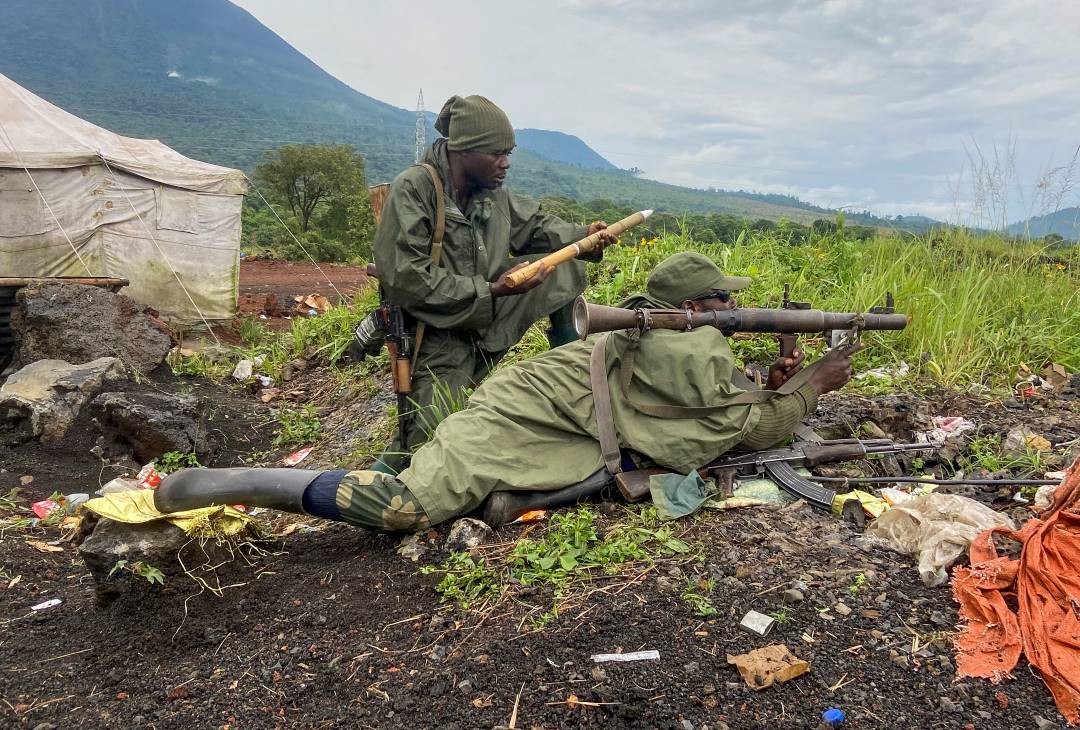The Democratic Republic of the Congo (DRC) is grappling with its most severe security crisis in decades as the M23 rebel group, backed by Rwanda, continues its relentless advance across eastern provinces. Despite international mediation efforts, clashes between M23 fighters and pro-government forces have intensified, displacing hundreds of thousands and reigniting fears of a regional war reminiscent of the 1990s Congo Wars.
Escalation and Territorial Gains
Since January 2025, M23 has captured key urban centers, including Goma (North Kivu’s capital) and Bukavu (South Kivu’s capital), displacing over 400,000 people and overwhelming humanitarian systems. The rebels, who claim to represent marginalized Tutsi communities, have entrenched governance structures in occupied territories, signaling long-term ambitions. Recent skirmishes near Lake Edward and South Kivu’s capital underscore their push toward strategic locations like Uvira, a mineral-rich city critical to regional trade.
M23’s military prowess is widely attributed to Rwandan support, with UN estimates suggesting up to 12,000 Rwandan troops in the DRC by March 2025. Rwanda denies direct involvement but acknowledges deploying forces to counter perceived threats from Congolese-backed militias like the FDLR. The DRC government has severed diplomatic ties with Rwanda, labeling its actions a “declaration of war”.
Humanitarian Fallout
The conflict has triggered a humanitarian emergency. Morgues in Goma overflowed with bodies during the January offensive, while food prices doubled as supply chains collapsed. Civilians face dual threats: M23’s expansion and retaliatory abuses by retreating Congolese soldiers and allied militias. In Uvira, residents report looted markets, shuttered schools, and a breakdown in basic services.
Regional Entanglement
The crisis risks drawing in neighboring states. Burundi initially deployed 12,000 troops to support the DRC but withdrew most forces in February 2025, leaving 3,000 behind. Uganda entered the conflict in March, seizing Bunia in Ituri Province, while South Africa deployed additional troops under the Southern African Development Community (SADC) mission. Tensions escalated after 13 peacekeepers died in January, prompting South Africa to warn Rwanda that further attacks would be treated as “acts of war”.
Failed Peace Efforts.
Regional mediators, including the East African Community (EAC) and SADC, have struggled to broker a lasting ceasefire. A March 2025 summit in Qatar between Congolese and Rwandan leaders excluded M23, which dismissed the talks as irrelevant. The group’s leader, Corneille Nangaa, vowed to fight “like individuals who have nothing to lose,” rejecting any peace process excluding M23.
Looking Ahead: Risks of Balkanization
The African Union has warned that M23’s territorial gains could fragment the DRC, echoing fears of “balkanization”. With Rwanda’s influence entrenched and regional actors deepening their involvement, the conflict threatens to mirror the multi-state wars of the 1990s. The DRC’s request for military aid from Chad and the UN Security Council’s adoption of Resolution 2773—urging Rwanda to end support for M23—highlight global concerns.
Yet, as M23 consolidates control and neighboring states jockey for influence, the path to peace remains elusive. Until Rwanda’s role is addressed and inclusive negotiations are pursued, eastern Congo’s future hangs precariously in the balance.

